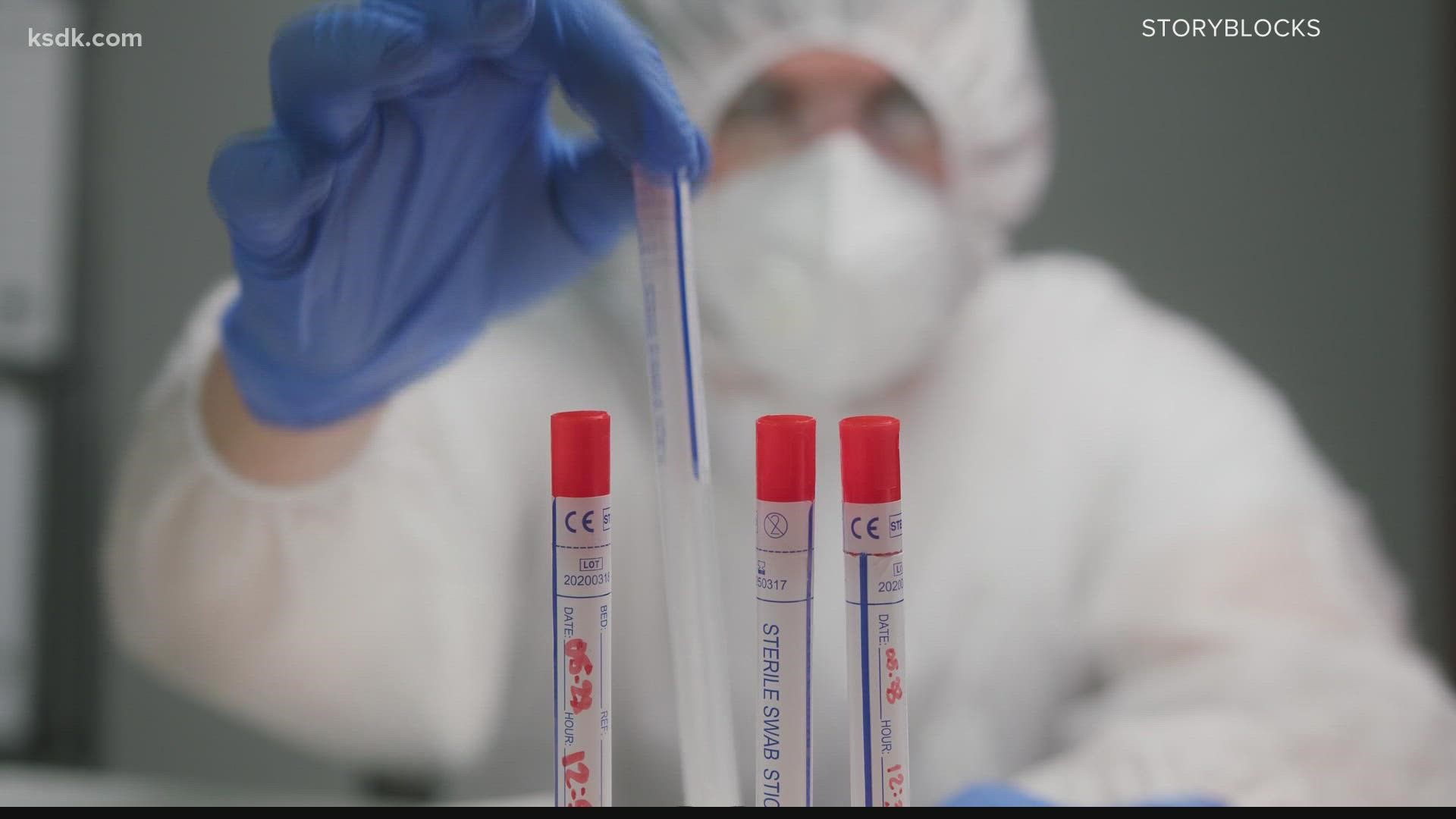ST. LOUIS — PCR or polymerase chain reaction tests, are processed in a lab and considered the gold standard for determining if someone has COVID-19. Positive and negative tests are pretty much self-explanatory, but what if yours comes back "inconclusive" or "indeterminate?"
The director of the SSM Health microbiology lab, Keith Landeros, says this can be caused by several scenarios, “depending on what type [of] test, specimen collection, method of testing, limitations of the test, and the manufacturer of the test."
For example, maybe not enough specimen or "sample" was collected to run the test properly, the test can be taken too early or too late in infection, or perhaps the type of test looks for specific "markers" of a positive case and detects some, but not enough to draw a conclusion.
So, what do you do if your test results aren't really results at all?
Typically, you'll need to take another test. When tests are in short supply across the country, that can be frustrating—but it’s recommended by health departments and labs, especially if you’re symptomatic.
"It is a challenge, and so we know that it can be an additional hurdle for individuals," said St. Louis City Health Department's Dr. Fredrick Echols. "That's why it was really important for us to increase access points for individuals who may need to get retested or individuals who just need to get tested, period."
Until a new test can be taken, it's best to presume a positive diagnosis.
"Individuals should isolate themselves from others while awaiting their test results and continue practices that help minimize the spread of the virus," said a spokesperson for the St. Charles County Health Department in an email. "If symptoms develop or worsen in severity, the individual should also speak with his/her medical provider or contact their local health department for additional guidance. In St. Charles County, residents can call 636-949-1899 for assistance."
"They need to continue to follow the isolation of quarantine guidelines they were following before they actually got tested," agreed Dr. Echols. "We need to make sure that we're doing our very best to protect the other individuals in that community."

